
Ubuntu, Botho
"We have a lovely African word which is very difficult to put into other languages: Ubuntu Botho. It speaks about our interconnectedness. I am, because you are. And we say, a person is a person through other persons. We are interconnected, all of us." (Archbishop Desmond Tutu)
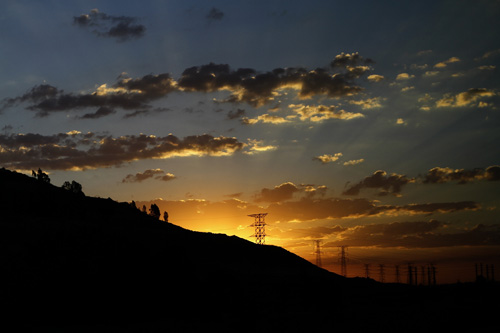
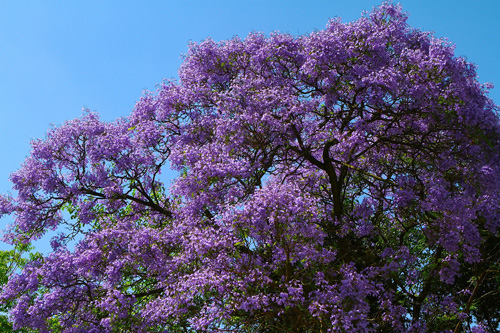
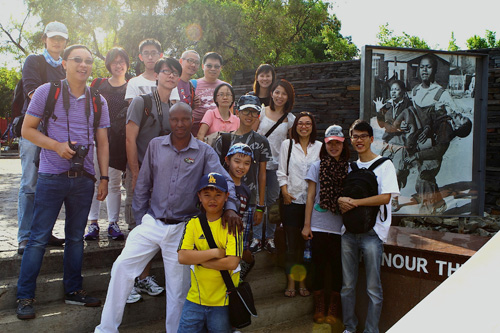
One would not consider Johannesburg as a beautiful city but spring has arrived and the city is dotted with trees of purple - a welcome delight to the nineteen Peacemakers on the Road who survived an overnight flight of more than 10 hours. Jo'burg, as it is commonly known, is the largest and wealthiest city in South Africa, home to a melting pot of cultures, mine dumps, opulent white-owned houses with barb-wired fences situated in proximity to a poverty-stricken black township of Soweto. The trees that we see around us are not indigenous to Jo'burg but were all imported according to Richard, our guide for our Soweto Tour. Richard was huffing and puffing as he gave a running commentary on the history of South Africa. Richard had run a distance to our coach. Earlier, the peacemakers were getting restless waiting for him in our coach parked at a petro kiosk. For a moment, our imaginations ran wild, fearing for the worst as our driver cunningly evaded our questions about the delay. "My car had broken down along the way," Richard explained and later pointed out a road in Soweto that is lined with pseudo mechanics who could help troubleshoot or fix his broken-down car.
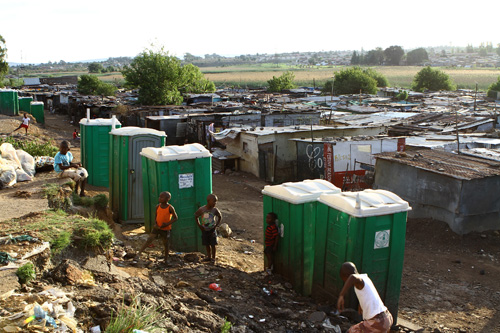
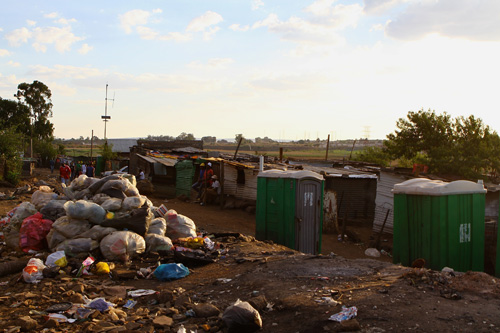
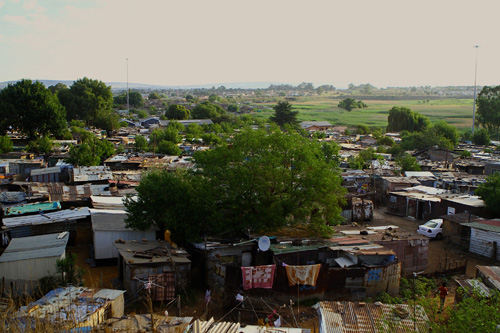
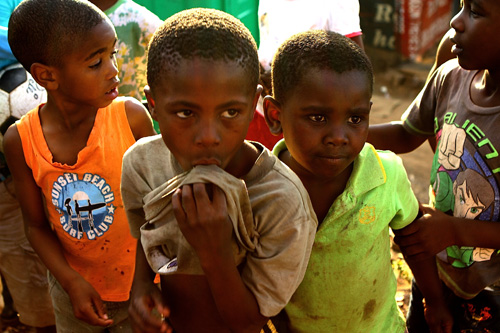
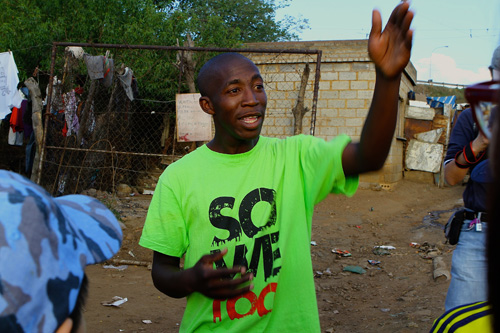
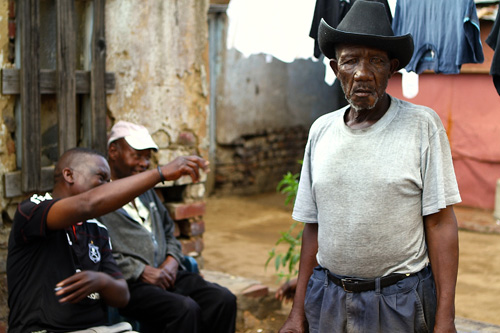
More than just a tour of touristic sites of Soweto, the stories documented of Hector Pieterson Museum, the Freedom Charter Monument in Kliptown, the former house of Nelson Mandela at 8115 Vilakazi Street weaved the heart-wrenching narratives of a country and peoples who had weathered through dark periods of destructive and fearful times. Apartheid, like a deep scar that had left its ugly marks in South Africa, is a reminder of the tragic consequences of hatred, inequality and injustice. The divides and wounds of their troubled past are deep and would take time to heal.
Rather than burying the scars and pains, the Soweto local settlement of Kliptown welcomed us to step inside their world, see and experience their realities for a lingering moment that is now indelibly etched in our mind and awakened our conscience. A local guide from the Kliptown community led us into the meandering alleys of makeshift shacked houses of wood, scrap metal, mattresses coils inhabited by tens of thousand living in tight spaces with electricity that they stole from the government and water channelled from streams into the neighbourhood. We encountered groups of both young and old men gambling or sitting in a corner, a woman with a family of 6 living in tiny clean hut, a girl who performs healing for the community and also children loitering and playing near our coach. As we scurried through the alleys, our fears of the unexpected and unfamiliar gave way to compassion. "Take our photos, tell our stories to the world," urged our local companion as he thanked us for our visit.
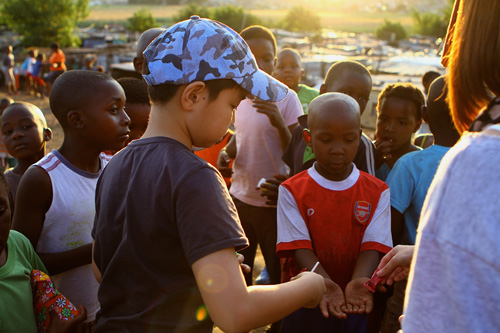
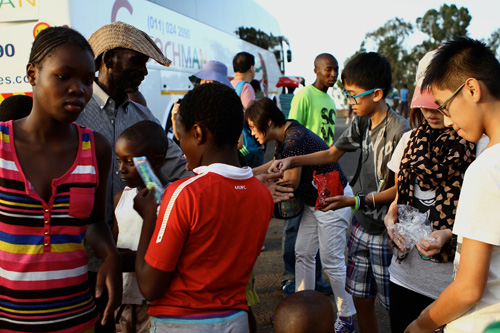
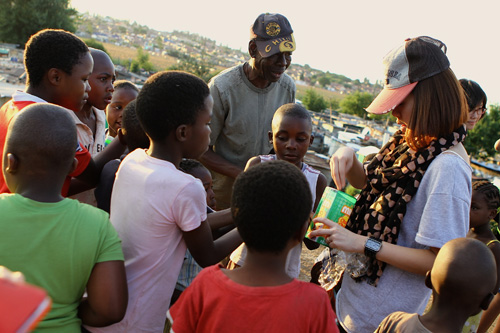
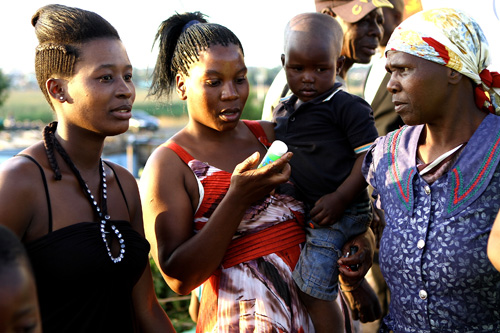
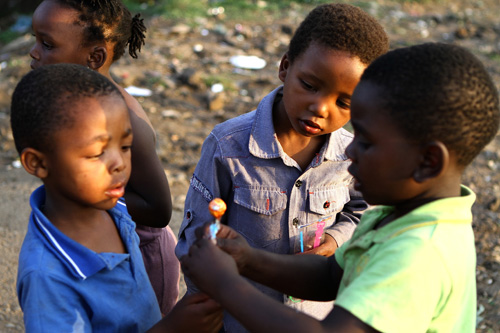
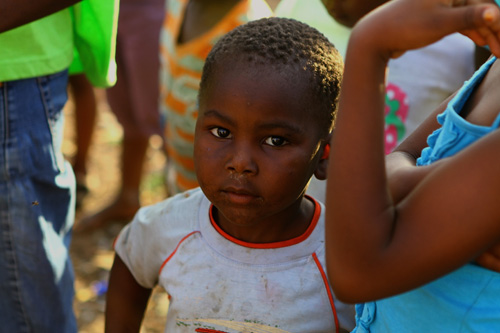
relational:
- Come Fly With Me
- Beauty Without Splendour
- Reflection: Play
- They Called Him, "Whacker!"
- Before Knowing
- I Won't Give Up
- A Beautiful Mess
- 你愿意吗?
- A Silver Lining
missional:
- POR South Africa 2013
- Deep Impressions
- POR Japan 2012
- Postscript from Takaido
- Happy Home Project
- Understanding Autism
- When Waters Rise
- Archive:
- 2010
- 2011

